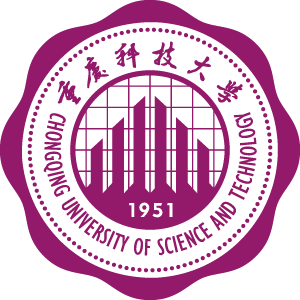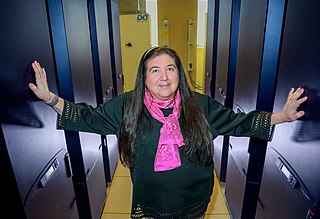ShaChelle Devlin Manning is an American business person involved in the commercialization of nanotechnology.
ShaChelle Devlin Manning is an American business person involved in the commercialization of nanotechnology.
Manning graduated in 1990 from Loras College in Dubuque, Iowa with a BA in English and Communications. She received an MBA from the University of Dallas.
From 1998 to 2002, she was Vice President for Winstar Communications, where she introduced wireless and internet technology.
In 2002 Manning became Director of Alliances at Zyvex Corporation, a nanotechnology company with research partnerships with United States governmental agencies such as DARPA, NIST, NASA, and the DoE. In 2005, she became a consultant to the Governor of the State of Texas as Director of Advanced Technology Alliances where she promoted the development of the Texas nanotechnology strategic plan, including a $30 Million fund to attract researchers in nanotechnology. In 2007 Manning joined Authentix, a Texas nanotechnology company.
In 2011, Manning co-founded MalibuIQ, LLC, an entrepreneurial private investment partnership in Malibu, California
She has been a board member for several organizations, including Astrotech Corporation and Loras College. She cofounded The Virtual Wall, an online site honoring Vietnam veterans. [1]

NEC Corporation is a Japanese multinational information technology and electronics corporation, headquartered in Minato, Tokyo. The company was known as the Nippon Electric Company, Limited, before rebranding in 1983 as NEC. It provides IT and network solutions, including cloud computing, artificial intelligence (AI), Internet of Things (IoT) platform, and telecommunications equipment and software to business enterprises, communications services providers and to government agencies, and has also been the biggest PC vendor in Japan since the 1980s when it launched the PC-8000 series.

National Instruments Corporation, doing business as NI, is an American multinational company with international operation. Headquartered in Austin, Texas, it is a producer of automated test equipment and virtual instrumentation software. Common applications include data acquisition, instrument control and machine vision. Emerson Electric agreed to buy NI for US$8.2 billion in April 2023.

Sumio Iijima is a Japanese physicist and inventor, often cited as the inventor of carbon nanotubes. Although carbon nanotubes had been observed prior to his "invention", Iijima's 1991 paper generated unprecedented interest in the carbon nanostructures and has since fueled intense research in the area of nanotechnology.

King Mongkut's Institute of Technology Ladkrabang is a research and educational institution in Thailand. It is situated in Lat Krabang District, Bangkok approximately 30 km east of the city center. The university consists of nine faculties: engineering, architecture, science, industrial education and technology, agricultural technology, information technology, food industry, liberal arts, and medicine.

Judith Rodin is a philanthropist with a long history in U.S. higher education. She was the president of the Rockefeller Foundation from 2005 until 2017. From 1994 to 2004, Rodin served as the 7th permanent president of the University of Pennsylvania, and the first permanent female president of an Ivy League university.

The President's Council of Advisors on Science and Technology (PCAST) is a council, chartered in each administration with a broad mandate to advise the president of the United States on science and technology. The current PCAST was established by Executive Order 13226 on September 30, 2001, by George W. Bush, was re-chartered by Barack Obama's April 21, 2010, Executive Order 13539, by Donald Trump's October 22, 2019, Executive Order 13895, and by Joe Biden's February 1, 2021, Executive Order 14007.
The International Council on Nanotechnology (ICON) is an international, multi-stakeholder group committed to developing and communicating information regarding potential environmental and health risks of nanotechnology, thereby fostering risk reduction while maximizing societal benefit. ICON is composed of individuals from academia, industry, government and non-governmental organizations from countries of high nanotechnology research and development activity. ICON is a technically driven organization and does not engage in advocacy or commercial activities.

22°40′42″N72°51′52″EDharmsinh Desai University (DDU) formerly known as Dharmsinh Desai Institute of Technology (DDIT) is a state funded institution in Nadiad, Gujarat, India and was founded on 2 January 1968.

The California NanoSystems Institute (CNSI) is an integrated research center operating jointly at UCLA and UC Santa Barbara. Its missions are to foster interdisciplinary collaborations for discoveries in nanosystems and nanotechnology; train the next generation of scientists, educators and technology leaders; and facilitate partnerships with industry, fueling economic development and the social well-being of California, the United States and the world.
Imrich Chlamtac was born in Zlaté Moravce, Slovakia, where in 2015, he received an Honorary Citizenship. Professor Chlamtac is the President of EAI, the European Alliance For Innovation., a private non-profit organization hosting conferences Through its international presence and being the largest European professional community in information technologies and their applications, EAI is dedicated to making information technologies a catalyst for the improvement of society, to advance worldwide research communities and help professionals build their career in an open, innovative community driven environment. As Founding President of CREATE-NET, he led the organization to international recognition as one of the leading European research organizations in communications.
Gregory David Wasson is an American businessman. He is the co-founder and president of Wasson Enterprise, a family-based investment office, the executive chairman of Innventure, co-founder of CoolerScreens, and the former president and chief executive officer (CEO) of Walgreens Boots Alliance.

29°35′30″N106°19′33″E

CEA-Leti is a research institute for electronics and information technologies, based in Grenoble, France. It is one of the world's largest organizations for applied research in microelectronics and nanotechnology.

James R. Von Ehr II is an American programmer, inventor and entrepreneur. Von Ehr is the former chief executive of Zyvex corporation, the world first and most successful molecular nanotechnology company.
Yamuna Krishnan is a professor at the Department of Chemistry, University of Chicago, where she has worked since August 2014. She was born to P.T. Krishnan and Mini in Parappanangadi, in the Malappuram district of Kerala, India. She was earlier a Reader in National Centre for Biological Sciences, Tata Institute of Fundamental Research, Bangalore, India. Krishnan won the Shanti Swarup Bhatnagar Prize for science and technology, the highest science award in India in the year 2013 in the Chemical Science category.

Carolina Cruz-Neira is a Spanish-Venezuelan-American computer engineer, researcher, designer, educator, and a pioneer of virtual reality (VR). She is known for inventing the cave automatic virtual environment (CAVE). She previously worked at Iowa State University (ISU), University of Louisiana at Lafayette, University of Arkansas at Little Rock, and she is currently an Agere Chair Professor at University of Central Florida (UCF).

Larraine D Segil is a South African-born entrepreneur, attorney, advisor, lecturer, author, board member and urban farmer. She is CEO of The Little Farm Company, a Los-Angeles based family holding company which was mentioned in Forbes magazine. Segil has been a commentator for CNN and CNBC and has been featured in Fast Company magazine and Bloomberg Business.
David Van Wie is an American inventor, scientist and entrepreneur. Van Wie was educated at Pomona College and the University of Wisconsin.
Andrew R. Barron is a British chemist, academic, and entrepreneur. He is the Sêr Cymru Chair of Low Carbon Energy and Environment at Swansea University, and the Charles W. Duncan Jr.-Welch Foundation Chair in Chemistry at Rice University. He is the founder and director of Energy Safety Research Institute (ESRI) at Swansea University, which consolidates the energy research at the University with a focus on environmental impact and future security. At Rice University, he leads a Research Group and has served as Associate Dean for Industry Interactions and Technology Transfer.
Janice Leigh Limson is a South African Professor of Biotechnology, former Chairperson the School of Biotechnology at Rhodes University and the SARChI Chair in Biotechnology Innovation & Engagement at Rhodes University. She is founder and editor-in-chief of the magazine Science in Africa, the first popular online science magazine for Africa. Her research focuses on topics ranging from the development of nanotechnology biosensors for cancer diagnostics, drug delivery, detection of pathogens in food to the design of fuel cell technology.